The digital world is teeming with opportunities for connection and innovation, yet it’s also fraught with scams that threaten our online safety. The WhatsApp Gold scam is a striking example of how cybercriminals exploit our trust in popular apps to disseminate malware and hoaxes. This article delves into the essence of the WhatsApp Gold scam, unpacks the associated risks, and offers actionable advice to shield yourself from this and similar online threats.

Understanding WhatsApp Gold and Its Illusions
What is WhatsApp Gold?
WhatsApp Gold purports to be an exclusive version of WhatsApp, promising users access to enhanced features and updates not available in the standard app. This lure, however, is a facade. The truth is starkly different: WhatsApp Gold does not exist. It’s a scam designed to trick users into visiting malicious websites or downloading malware-laden software.
The Infamous WhatsApp Gold Virus
At the heart of this scam lies the WhatsApp Gold virus, a term that encapsulates the malware and harmful software disseminated through the hoax. The scam unfolds through messages inviting users to upgrade to WhatsApp Gold, with a link that leads to the installation of malware on the user’s device.
WhatsApp Gold 2023 Virus: A Persistent Threat
The narrative of WhatsApp Gold has evolved, intertwining with another hoax known as the Martinelli video warning. Messages warn of a catastrophic malware, supposedly spread via a video called Martinelli, that can wreak havoc on one’s device. The warning is clear: any prompt to download or update WhatsApp Gold is a gateway to this malware.
Strategies to Thwart the WhatsApp Gold Virus Scam
Identifying and Avoiding the Scam
- Scrutinize Messages for Urgency and Authenticity: Scammers often employ urgency and impersonate credible sources to prompt immediate action. Be skeptical of any message that pushes for quick updates or downloads, especially if it’s littered with spelling errors or vague origins.
- Automatic Updates: Remember, WhatsApp updates itself automatically through the app store. Any message asking you to manually download an update is a red flag.
- Awareness of the Martinelli Hoax: Educate yourself and others about hoaxes like Martinelli that are associated with WhatsApp Gold, reinforcing that these narratives are fabricated to spread malware.
Protective Measures Against WhatsApp Scams
- Install Security Software: Equip your device with reputable antivirus and malware protection to detect and block malicious software.
- Practice Digital Literacy: Enhance your ability to identify scams by familiarizing yourself with their common characteristics, such as unsolicited offers or requests for personal information.
- Use Strong Authentication: Enable two-factor authentication for an added layer of security against unauthorized access.
Responding to a Compromised Situation
If you inadvertently download the fake WhatsApp Gold or any suspicious software, take immediate steps to mitigate the damage:
- Remove the Malicious App: Uninstall any suspicious applications from your device.
- Run Antivirus Software: Conduct a thorough scan of your device to detect and remove malware.
- Change Your Passwords: Update your passwords, especially if you’ve entered them after downloading the suspicious software.
Fortifying Your Online Defense
Beyond individual scams, bolstering your overall online safety is crucial. Employ content blockers and privacy tools to shield against malicious websites and phishing attempts. Regularly updating your software ensures that security patches are applied, fortifying your defense against new threats.
Crypto Scams: A Parallel Precaution
The principles of avoiding WhatsApp Gold scams extend to protecting against crypto scams. Be vigilant of unsolicited investment opportunities, verify the authenticity of cryptocurrency platforms, and never share your private keys.
Conclusion
In the dynamic realm of digital communication, staying informed and cautious is paramount. By understanding the WhatsApp Gold and WhatsApp Virus scam and adopting comprehensive security practices, you can navigate the internet with confidence, safeguarding yourself and your digital footprint from the ever-evolving landscape of online scams.
SUMMARY:
Remove WhatsApp Gold Virus
If you have an Android virus, continue with the guide below.
If you have an iPhone virus, please use our iPhone Virus Removal guide.
If you have a Mac virus, please use our How to remove Ads on Mac guide.
If you have a Windows virus, please use our Windows Virus Removal guide.

Whether you use the default “Internet” App for browsing or a different browser like Chrome you need to go to:
Settings/More/Application Manager/All
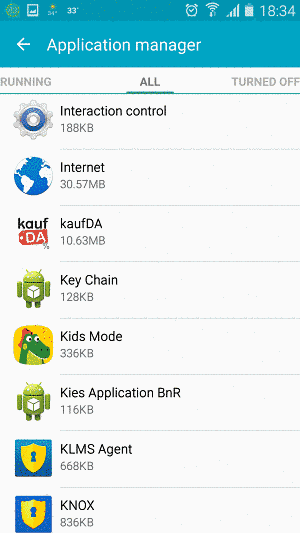
Locate the Browser/App in question and tap on it.

Now the method is effectively the same for users using both “Internet” and Chrome/Other Browsers, yet for more clarity we have provided instructions for both:
For “Internet” Browser Users:
Tap the Force Stop button.
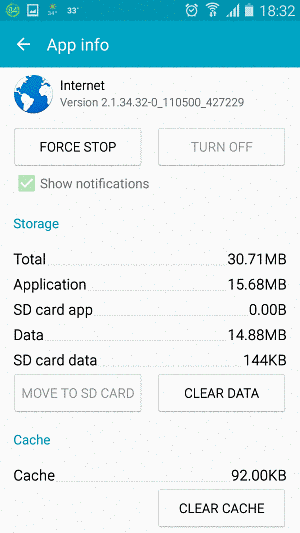
Now tap the Clear Data and Clear Cache Buttons.
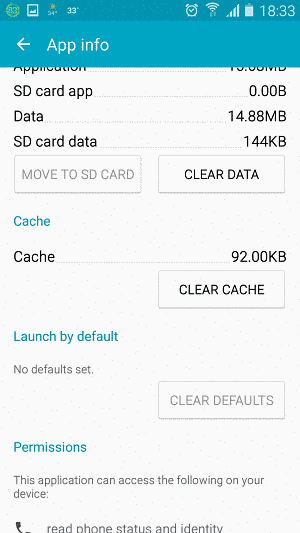
For Google Chrome Users:
Click on Force Stop.
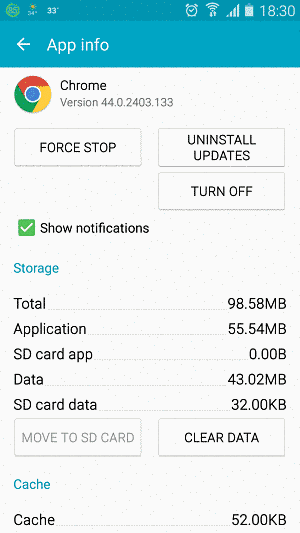
Then click on Clear Data and Clear Cache.
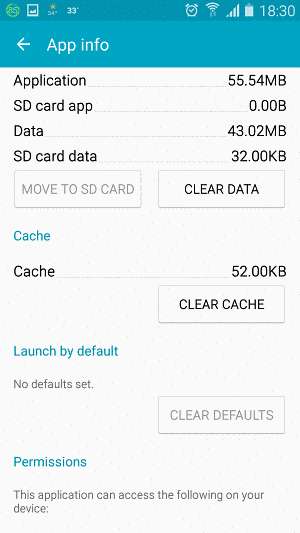

Restart your Browser. It might be a good idea to Reboot your Android device, just in case.
- Important!
If you are still seeing Ads in your browser, it is likely they are generated by the websites you visit and there is nothing you can do about it.
However, if you are seeing Adverts outside of your internet browser, then one of your installed Apps contains the problematic Adware. In this case you need to take a look at this guide.
Did we help you? Please, consider helping us by spreading the word!

Leave a Reply